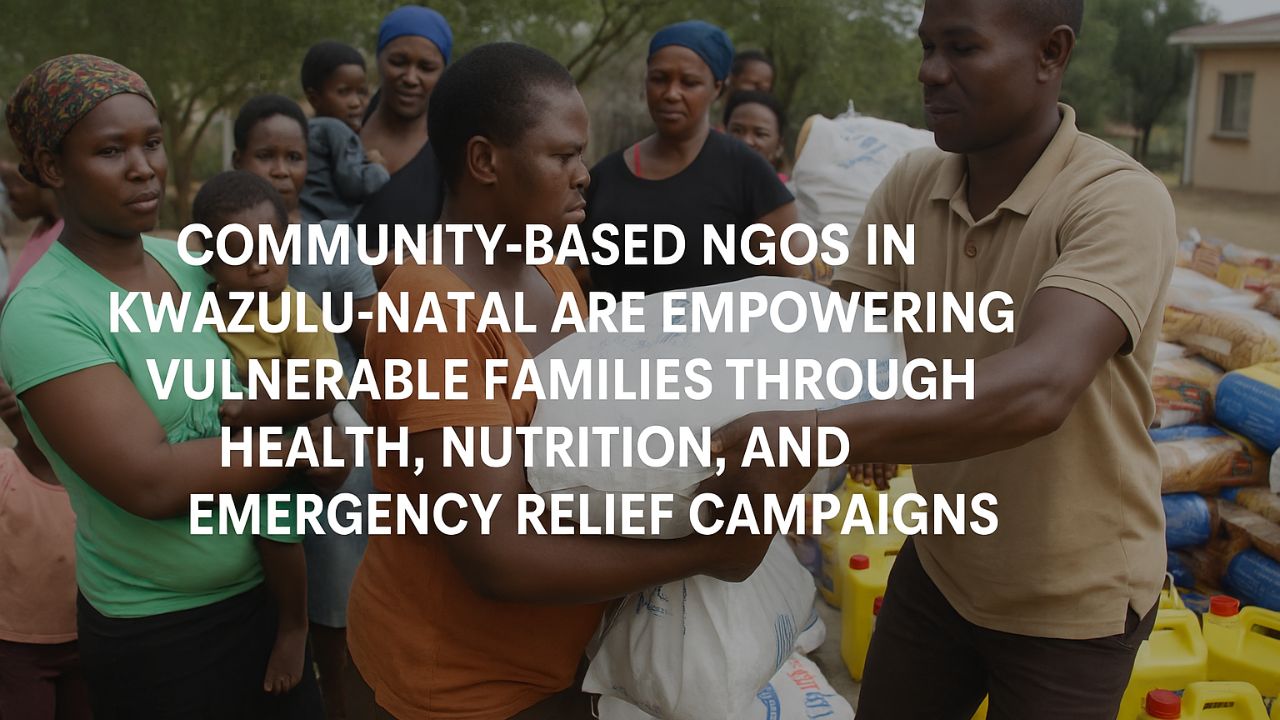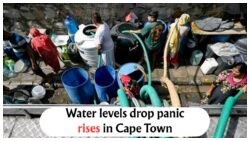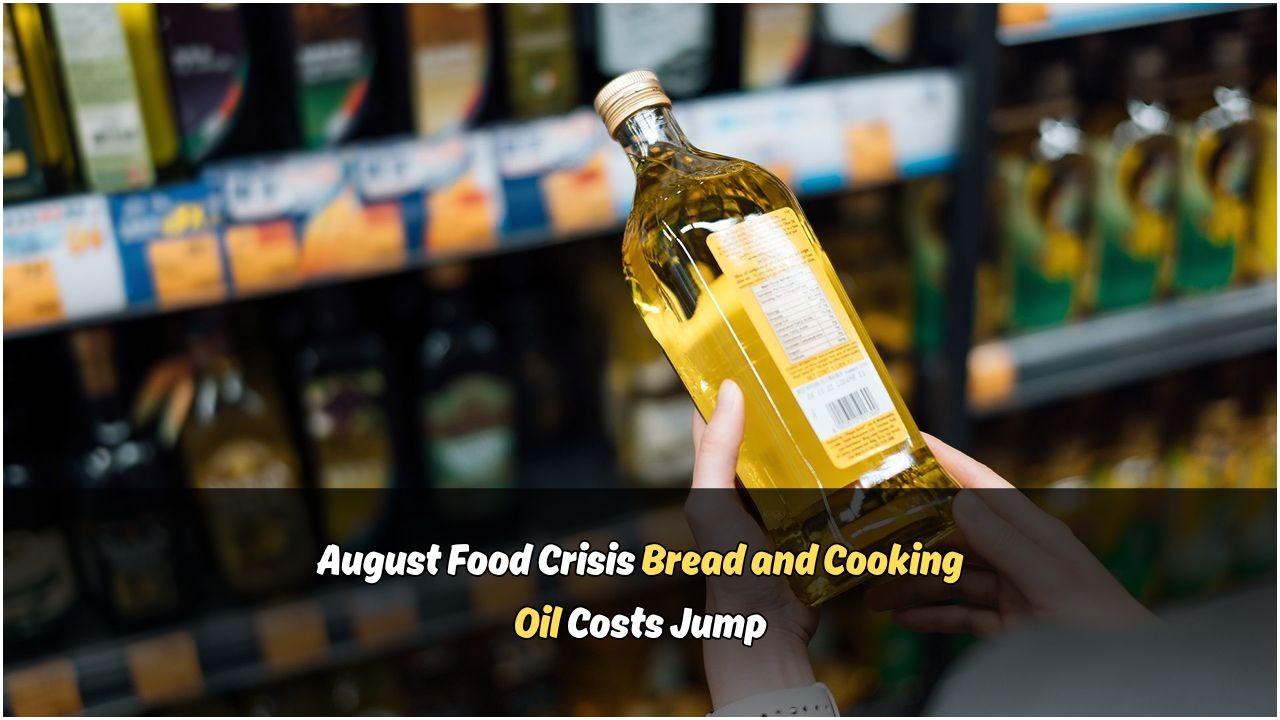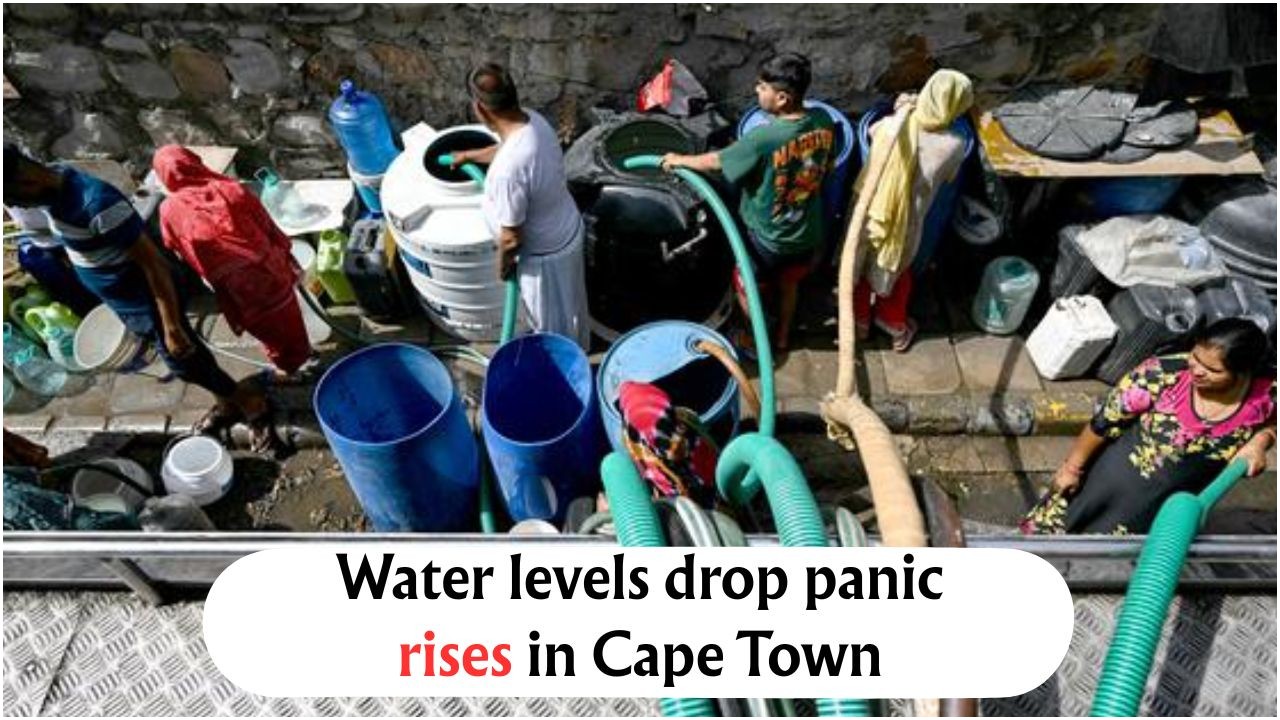Community-Based NGOs – In the heart of KwaZulu-Natal (KZN), a quiet revolution is taking place—led not by politicians or corporations, but by small, community-based NGOs that are reshaping the lives of vulnerable families. With poverty, unemployment, and hunger still affecting thousands across rural and urban KZN, these NGOs have stepped up where government programs often fall short. Their work ranges from distributing food parcels and offering medical aid to providing emotional support and emergency relief during natural disasters. For thousands of families, these campaigns are not just programs—they are lifelines. Let’s explore how these local organizations are empowering communities, what kind of health and nutrition initiatives are working on the ground, and how emergency relief has saved lives in times of crisis.
Health and Wellness Campaigns for Underserved Families
Many vulnerable families in KZN don’t have access to basic healthcare. To bridge this gap, NGOs have launched targeted wellness campaigns.
- Free Mobile Clinics reach remote villages weekly.
- HIV/AIDS Awareness Drives are conducted in schools and townships.
- Child Immunization Support is provided for children under five.
- Maternal Health Programs assist pregnant women with nutrition and checkups.
- Mental Health Counseling is offered in trauma-affected areas.
Impact Snapshot: Health Services Delivered (2024)
 Urgent Storm Surge Alert for Coastal SA: Eastern Cape and KZN Residents Advised to Seek Safety
Urgent Storm Surge Alert for Coastal SA: Eastern Cape and KZN Residents Advised to Seek Safety
| Health Service Type | Number of Beneficiaries | Location Focus |
|---|---|---|
| Mobile Clinic Visits | 12,500+ | Umzinto, KwaMashu |
| HIV Testing & Counseling | 6,700 | Durban, Ladysmith |
| Prenatal Care for Mothers | 4,300 | Nongoma, Pietermaritzburg |
| Mental Health Workshops | 3,800 | Umlazi, Eshowe |
| Basic Medicines Supplied | 8,900 | Rural Northern KZN |
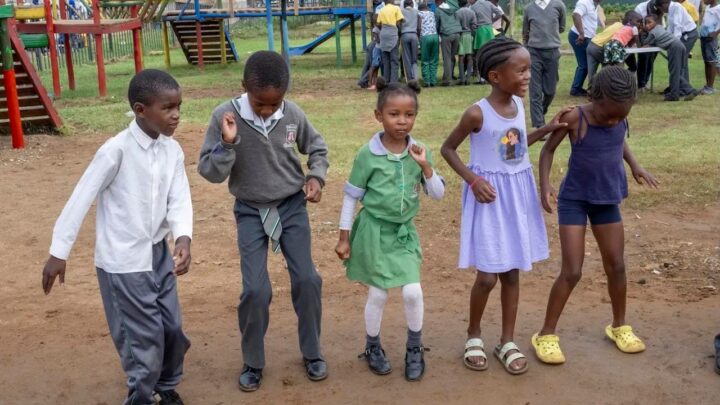
Nutrition Drives That Go Beyond Food Parcels
Food insecurity remains a major issue in many communities across KZN. These NGOs focus on long-term nutritional support instead of just one-time handouts.
- Monthly Food Parcel Deliveries with rice, maize meal, beans, and oil.
- Soup Kitchens in Community Halls serve hot meals daily to the elderly and children.
- Nutrition Education Sessions teach families how to cook balanced meals on a budget.
- Vegetable Garden Kits are given to families to grow spinach, tomatoes, and carrots.
Monthly Nutrition Support Data – Jan to June 2025
| Month | Households Reached | Food Parcels Delivered | Soup Kitchen Meals Served |
|---|---|---|---|
| January | 2,100 | 2,300 | 18,500 |
| February | 2,400 | 2,600 | 20,100 |
| March | 2,700 | 2,900 | 22,000 |
| April | 3,000 | 3,100 | 24,300 |
| May | 3,200 | 3,400 | 25,500 |
| June | 3,600 | 3,800 | 27,000 |
Emergency Relief During Natural Disasters
KwaZulu-Natal is prone to floods, fires, and cyclones. Community NGOs are often the first responders in such crises.
- Emergency Shelter Setup within 24 hours of disaster onset.
- Blankets, Water, and Hygiene Packs are distributed immediately.
- Rehabilitation Programs support families to rebuild homes and livelihoods.
- Collaboration with Local Authorities ensures smooth disaster response.
Case Study – April 2025 Floods in Durban
When floods struck the Durban South Coast, over 1,500 people were displaced overnight. Local NGOs were able to:
- Set up 7 temporary shelters within 48 hours.
- Distribute 2,000 hygiene kits and 1,500 blankets.
- Launch trauma support groups for affected children.
Women’s Empowerment Through Community Nutrition
Women are at the center of most NGO initiatives. In many KZN communities, women manage food, health, and childcare.
- Mother Support Groups empower women to take charge of household nutrition.
- Training in Sustainable Farming for backyard gardens and co-ops.
- Women-Run Soup Kitchens provide dignity and leadership roles to female community members.
- Health Screenings for Women include breast cancer and cervical screening drives.
Youth Engagement and Volunteerism
Young people are increasingly stepping up to support these campaigns—making the effort truly community-led.
- Volunteer Corps help deliver food and medicine door-to-door.
- Youth Peer Educators teach health and nutrition at schools.
- Digital Media Campaigns raise awareness about hygiene and wellness online.
- Skill-Building Workshops in carpentry, farming, and healthcare aid create future job paths.
The combined efforts of these community-based NGOs in KwaZulu-Natal are not just changing individual lives—they are transforming entire communities. What sets these initiatives apart is their local focus, low-cost model, and real-time action. With increased collaboration between civil society and government, these efforts could become blueprints for sustainable development across South Africa. Their work proves that real change often begins at the grassroots level—with empathy, action, and the power of people working together.
FAQs
Q1. How can I volunteer with a local NGO in KwaZulu-Natal?
You can visit the websites or social media pages of local NGOs and sign up for community drives or weekend volunteering programs.
Q2. Are these health services free of charge?
Yes, most mobile clinics and health awareness programs run by these NGOs are completely free for vulnerable families.
Q3. What kind of food is usually provided in the parcels?
Food parcels typically include staples like maize meal, rice, beans, oil, salt, canned food, and sometimes baby formula.
Q4. How can a family request emergency support after a disaster?
Families can contact local NGO offices or community leaders who usually act as the bridge between the affected family and relief teams.
Q5. Are these NGOs funded by the government?
Some receive partial funding from government grants, but most rely on donations, international aid, and partnerships with local businesses.
